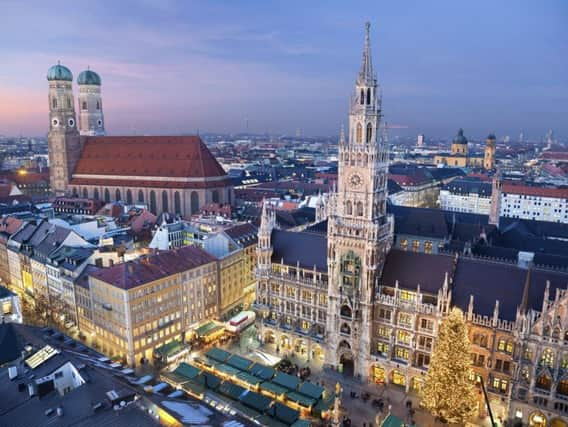Is it time to bank on our German neighbours? - David Scrimgeour


Scotland is fortunate in having a fundamentally positive image in Germany, with brand capital that would be impossible to buy. Unfortunately, though, very little has been done so far to understand exactly what this image is and how best to capitalise on it.
In the first instance, it is necessary to clear away the Scots’ own misconceptions and to see ourselves as others, in this case the Germans, see us. The first myth to explode is the idea that anybody outside of Scotland gives a toss whether we invented the television, the telephone or Grand Theft Auto. It is just not relevant.
Advertisement
Hide AdAdvertisement
Hide AdObviously, as well, the whole tartan thing just passes the Germans by as the Scottish “granny factor” only applies in the places to which Scots emigrated. Interestingly though, people here have picked up on the myth of the skinflint Scot but this is possibly because the Germans are great savers and thrift is generally seen as a really positive attribute.
“Plucky Highlander” probably best sums up the image of the Scot in Germany. The film that people here connect with Scotland is not Braveheart but Highlander, which appeals to the deeply romantic German soul.
The “plucky” part comes from two sources: an often surprisingly detailed understanding of Scottish history with the centuries of conflict with England and, secondly, from football. Germans love football and, fortunately for us, they have not noticed that the Scottish team doesn’t qualify these days for international competitions. So they have memories of hard-battling teams from this small nation going out in a blaze of glory and supported by woad-daubed, kilted fans who were always in good spirits – often then in contrast to English fans.
A wild country
When I worked in Germany for the Scottish Government in the 90’s there was close to zero perception of Scotland as an industrial location, with only some awareness of shipbuilding and the oil industry. That was the first problem. The second was the fact that many of these German businessmen loved Scotland as a “wilderness” holiday destination and didn’t want to mess it up with their factories. (As a side note, the Germans still love Scotland and spent around £200 million on holidays there in 2018.)
The good news was that many had a positive perception of our country as being unspoilt with attractive landscapes and traditions, friendly people and, of course, whisky. In our marketing campaigns for Locate in Scotland we tried very hard to “convert” this positive view into inward investments but it was a struggle. You can change people’s minds to a certain extent but it is very expensive to achieve. Also, as soon as a campaign is over, they then revert to their default position.
There is a real opportunity in these difficult times to capitalise on the goodwill in Germany. But, to make this happen, we can no longer rely on government initiatives or economic development agencies. Instead companies urgently need to engage much more directly in this wealthy, open and dynamic market. And our banks, law firms and the larger consultancies can provide support with their international networks and contacts.
More than 60 per cent of Scotland’s current “exports” go to England and, in the current geopolitical circumstances, that is no longer a sustainable situation for a country which is so geographically challenged. We must also establish direct trading links to the continent. If Scottish football is no longer able to represent Scotland in Europe then Scottish business has to take on the challenge.
- David Scrimgeour MBE, formerly the Scottish Government’s investment representative in Germany and Austria, is now working as an energy consultant in Munich.